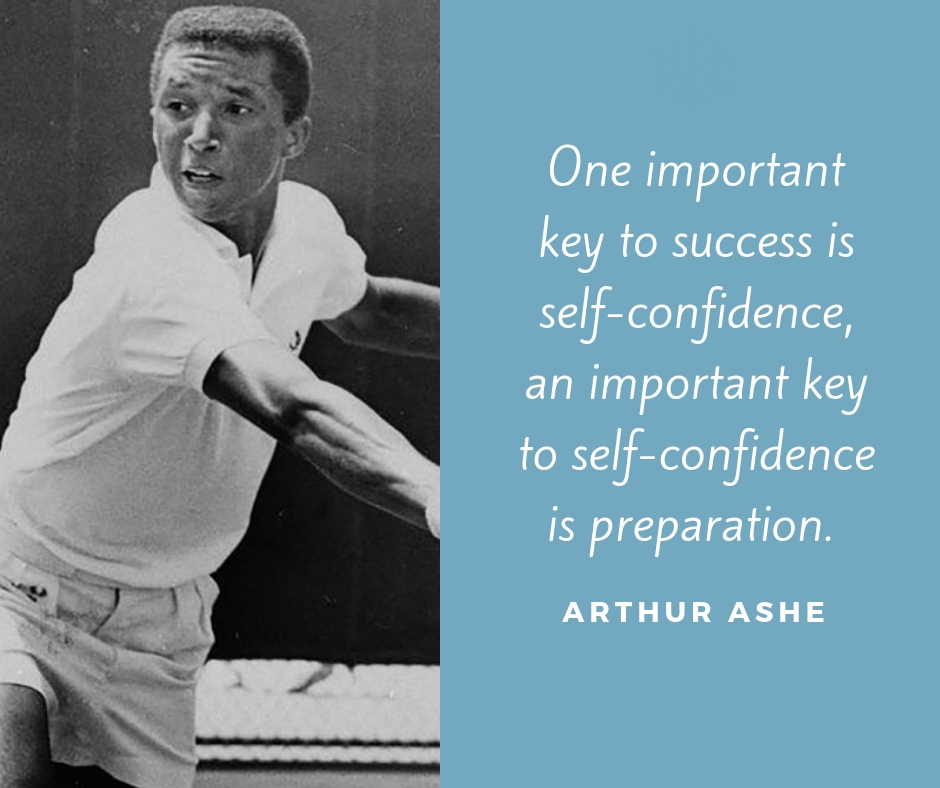Glossophobia - The Fear of Public Speaking
Whether it’s a sales pitch, a presentation for a job interview, chairing a meeting or feeding back to a board of directors, many of us fear public speaking. Glossophobia (the fear of public speaking) affects 20% of the United Kingdom and many more of us lack the confidence in our ability to engage with a group of people.
However public speaking and presentation skills can be learnt, fear can be conquered and confidence can grow. You may never look forward to public speaking but at least you know how, so your presentation will be clear, confident and relevant.

Preparation is the Key to Self-Confidence
The famous tennis player Arthur Ashe is quoted as saying “One important key to success is self-confidence, an important key to self-confidence is preparation”.
It would be rare for a presentation or a speaking event to be sprung on you, normally you will have time to prepare your speech and the content of your presentation.
Here are some preparation suggestions:
- Take time to understand your brief, pick out the key elements of that brief and prepare content accordingly.
- Understand your audience, the content of the presentation will be dictated by who's going to be listening.
- Focus on the key points of the presentation and create content around the value you are bringing to the audience.
- Relevance is key to your success whether the presentation is 5 minutes or whether it's an hour and a half.
- As far as content is concerned there are three rules: get to the point, stick to the point and wrap it up.
- What is the best delivery method for your presentation? Is it a PowerPoint presentation, a webinar, a simple discussion, a focus group or a training course?
- check out the venue before your presentation to get used to the space.
- ensure that all of your materials are together and that the technology, if you're using it, is working long before the presentation starts.
Practice, Practice, Practice!
Fluency in your presentation will come from thoroughly knowing the material and this can only be achieved through practice.
Take time to go through your presentation, finesse what works and change what doesn’t. Check your timings, no one likes a presenter who overruns.
Some tips on practice:
- Read the slides out aloud, what works in your head may not sound right to an audience.
- If possible, get a couple of friends and deliver to them and ask for constructive feedback.
- Record yourself (yeah, I know most of you are going NOPE right now). It will help you understand the flow of the presentation and help in making amendments.
- Use notes. Prepare notes to keep you on track. Either handheld or on the PowerPoint slides. Use them as a prompt in practice to get you away from those slides.
- Time yourself! My personal bugbear is people who overrun. Get your timings right and make sure there is a clock you can keep your eye on during the presentation.
- Whatever materials/technology you are using practice with them as well.
- Try to come up with a list of questions you may be asked. Practice answering them so you appear knowledgeable and confident on the day.
Patience Makes Progress
Even the most experienced public speaker will find that new material (and even some old stuff) can and will go wrong. Never treat this as a failure. Assess what didn’t work and correct it. More importantly, recognise what went well and refine it.
This is a skill like any other, mistakes, blips and bloopers are all part of the learning experience. We learn by evaluating and persisting. Progression over perfection.
Some patience tips:
- Seek constructive feedback and take action.
- Evaluate yourself fairly and constructively, refine the good and change the bad.
- Understand that your audience, generally, is on your side. Engage with them after the presentation. Talk about the subject you delivered, you may get some great ideas to add in.
- Experiment with different materials and delivery methods. Incorporate video, infographics or group activities into the mix. Be brave, if it doesn’t work don’t do it again! The next group will never know.
- Don’t be nervous, be excited. I’ve popped a quick video from Simon Sinek below that may help!
I am one of those rare weirdos who loves public speaking (networking terrifies me though). At 12 years old my middle school teacher gave me 11 out of 10 for my presentation on reptiles and amphibians of the United Kingdom and I was hooked.
I'm also a classically trained singer and I’ve been involved in musical theatre for many years. As a result, standing up in front of other people and talking has been a big part of not just my professional life but my personal life as well.
I hope these insights have been useful and if you would like some help preparing for a presentation or think your business might benefit from a course please do get in touch.
Anyone can become a public speaker, it just takes Preparation, Practice and Patience.
Find out how I can help your business
Get in touch to discuss how I can help.